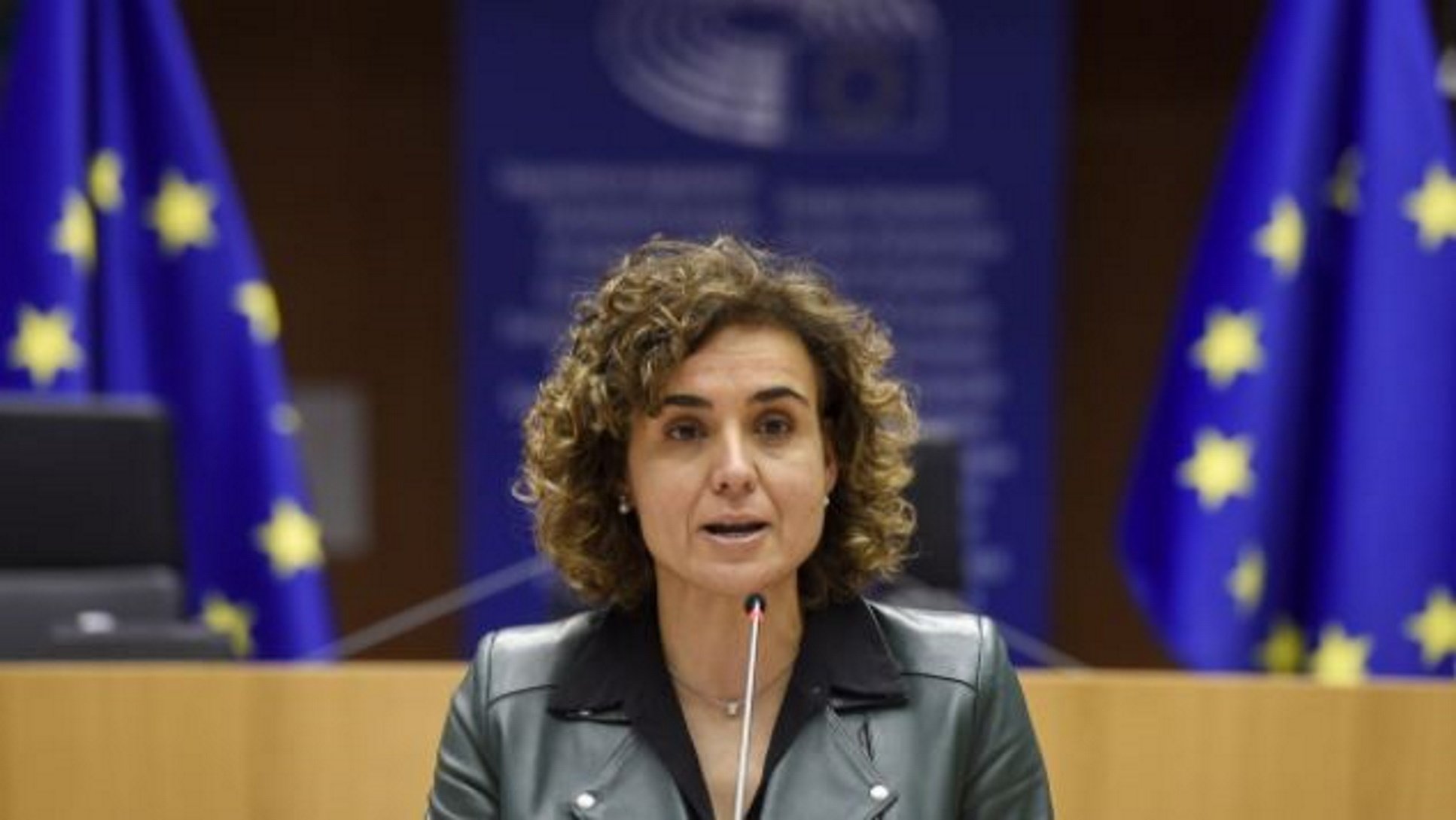The European Commission has, for the third time, refused to endorse the arguments of those who want to impose Spanish language in Catalan schools, and has indicated that it has no competence in this matter. This happened in the European Parliament's Petitions Committee, where the handling of the issue was marked by the actions of its chairperson, Dolors Montserrat, MEP for Spain's Popular Party from Catalonia, who prevented two other Catalan MEPs, Toni Comín (Junts) and Diana Riba (ERC) from giving parts of their speeches on the issue in Catalan. When Comín and Riba tried to use Catalonia's own language in their speeches - having spoken Spanish for most of their addresses - Dolors Montserrat interrupted them, saying that they would not be translated. "There are only 24 official languages in this parliament," said Montserrat, cutting off the speakers.
Above, participation in the European Parliament's Petitions Committee meeting by Junts MEP Toni Comín (top) and ERC's Diana Riba (lower). Both MEPS begin their speeches in the Spanish (Castilian) language, but switch to Catalan (Comín at 1:17 and Riba at 3:15), and they are subsequently interrupted by the chair, Dolors Montserrat.
The president of the so-called Assembly for a Bilingual School (AEB), Ana Losada, reappeared in the European Parliament's Petitions Committee asking for support, but Rajka Lozo, of the European Commission's Directorate-General for Education, indicated that the situation of the Catalan school is an internal matter. He reminded that Brussels can only intervene when "EU law is violated". "That doesn't seem to be the case with the information we have," he said. The committee, which is chaired by Montserrat, tried to keep the Spanish pressure group's petition alive anyway, and announced that the parliamentary body had left the petition open and would send "a request" on its own to the Catalan government and Pedro Sánchez's Spanish executive so that "the ruling is being complied with." The committee coordinators could debate later if they would send a mission of MEPs to Catalonia to analyze the situation, according to Montserrat. In her speech, Losada accused the Catalan government of "attacking the rule of law" and called for "help in Europe". "The Spanish government maintains a suspicious silence," she said.
The intervention of the Spanish nationalist group led to responses from the two Catalan parties Junts and ERC, which defended the Catalan school model, which is based on learning two languages via immersion in the less strong of the two, Catalan. Junts MEP Toni Comín warned that without the language immersion model, the situation would move towards an "asymmetric bilingualism" in which Catalan would be only a "residual" language in Catalonia. "It's the dream of Spanish nationalism," he said. For her part, ERC member Diana Riba denounced the attempt to "create a problem where it does not exist". "They believe they can win [a few more votes] at the expense of our language. At its core, this is a crusade by Spanish nationalism that seeks to standardize the Spanish state out of fear of diversity," she said. And she argued that it should be put it context: "Since 2005, there have been 83 complaints about the Catalan language model out of 25.5 million students enrolled in schools over the same period," said Riba.
On the other hand, Ciudadanos' MEP Jordi Cañas reprimanded the European Commission for refusing to intervene in what it considers "a very serious situation". Cañas accused the Catalan government of failing to comply with the recent court rulings ordering schools to teach 25% of classes in Spanish, as well as "promoting" the alleged harassment of families asking for that quota. As well, PP deputy Rosa Estarás criticized the attempt to link the Catalan language "to independence" and denounced the recent case of the Canet de Mar school, where a family that wanted more Spanish language has to face the costs of the legal case and a hypothetical "harassment" over their campaign to introduce Spanish language at the school. "They're harassing the boy, they're killing him," she told the committee. The Catalan Socialist MEP Javi López, on the other hand, said that the Catalan education authorities are "still in time" to apply the 25% ruling and they "have always applied the rulings in this matter". "They were applied silently, but they were applied," he said.

